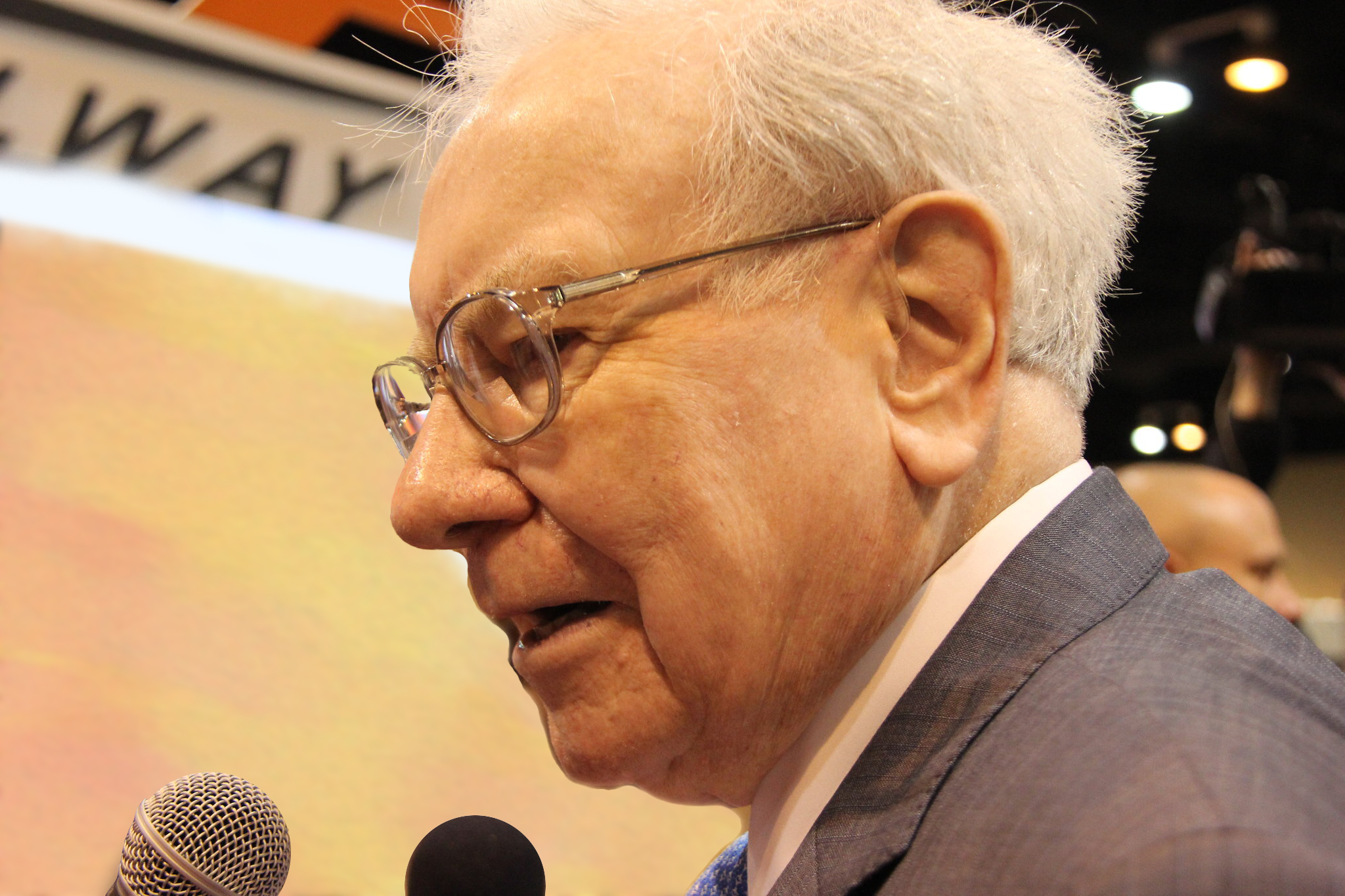If you're concerned about Warren Buffett's planned exit as Berkshire Hathaway's (BRK.A +0.28%) (BRK.B +0.20%) chief executive officer at year-end, you're not alone. The conglomerate's shares have underperformed the broad market -- by a lot -- since Buffett made the announcement in May. Investors are understandably concerned that the company will lose at least a little of its magic without the Oracle of Omaha at the helm.
And maybe it will.
A year from now, though, odds are good the stock's current weakness will clearly have been a fantastic buying opportunity. The market's pricing in far more concern than is merited.
What Berkshire Hathaway actually is
There's the Berkshire you know -- a portfolio of stocks mostly hand-picked by Buffett himself, including Apple, American Express, Coca-Cola, and Chevron, just to name a few. Most investors are curious to hear what Berkshire Hathaway owns just because they might want to piggyback on investments that Buffett has already approved.
Then there's all the other assets Berkshire Hathaway controls, including an assembly of several dozen wholly owned cash-generating outfits. These holdings include Dairy Queen, Duracell, Shaw Industries, railroad BNSF, GEICO insurance, Pilot Travel Centers, and more. Buffett has no particular favorite industry -- he just likes solid businesses run by managers he can count on. In fact, he prefers to stay out of their way.
In other words, Berkshire Hathaway is like a mutual fund as well as a private equity firm, but without all the speculation that most private equity activity tends to inspire.

NYSE: BRK.B
Key Data Points
And yet, Berkshire enjoys all the flexibility that neither fund managers nor private equity firms fully enjoy. That's the flexibility to do both, either, or neither, or even do nothing at all; as of the latest quarterly report, Berkshire holds $340 billion in cash just waiting to be invested in something. Buffett's in no hurry either. He's just waiting for the right time to step into the right opportunity at the right price without being pressured by regulatory requirements or impatient shareholders.
This is arguably the actual secret to Berkshire Hathaway's long-term market-beating success, although there's one detail here that needs to be drawn out.
Structured like no other
Buffett is brilliant, but that's not the biggest reason Berkshire shares have reliably outperformed the overall market since the company went public back in 1980. This company's shares have been able to beat the broad market largely because Buffett's been allowed to be patient, with little to no shareholder pressure to deploy idle capital, or lock in profits unnecessarily early.
It's also a bit of a blessing that so many of the conglomerate's companies aren't publicly traded, and therefore not prodded by investors focused on short-term results. The primary purpose of Berkshire's investments is to generate cash -- which they do, to the tune of about $40 billion per year. This cash is simply added to Berkshire's war chest where it can be used any way Buffett and his lieutenants see fit. And again, these options include doing nothing until something compelling comes along.
Although Berkshire can and will invest in any industry, insurance makes up a major portion its bottom line. The money held for potential insurance claims, however -- sometimes referred to as the float -- can also be utilized by Berkshire in a range of profitable ways, including investing in Berkshire Hathaway's non-insurance businesses.
Not quite the risk it seems
This is a seemingly risky move for Berkshire. After all, it's possible that the money needed to pay insurance claims isn't always conveniently liquid, forcing a sale of a stock or exit of a business at an inopportune time.
Take a closer look at Berkshire Hathaway's insurance operations, though, and for that matter, all of its privately held companies. Unlike many insurers, for instance, Berkshire's insurance businesses like auto insurer GEICO and corporate insurer National Indemnity Company along with medical liability insurer MLMIC are all actually rather predictable businesses regardless of the economic environment. There's not a ton of unmanageable risk here.
And to the extent there is unpredictable risk in the insurance industry, most of Berkshire Hathaway's other privately owned companies are also reliable cash cows -- something that can't often be said of other insurers' pool of funds.

Image source: Getty Images.
The point is, Greg Abel, Buffett's hand-picked successors, won't need to work any major stock-picking magic to maintain Berkshire's long-term track record. He will only need to continue using the winning formula and framework that Buffett established decades ago. That, and be patient enough to know when not to force an investment just for the sake of being invested. This shouldn't be too much of a challenge for the 62 year old, who has been part of the Berkshire Hathaway family since 1999.
Beat the rush
So why isn't any of this reflected in the stock's price of late? Largely because it's all a bit complicated.
Most investors tend to gravitate toward stocks of companies that offer a clearly marketable product or service. Think Nvidia, or the aforementioned beverage behemoth Coca-Cola. Conversely, many investors may be leery of owning a piece of company with a structure that's as complex as Berkshire's. Then when that outfit loses a bigger-than-life CEO that's become a high-profile fixture of the company like Buffett has, even more concern surfaces.
Buffett's presence isn't nearly as critical to Berkshire Hathaway's future success as most investors seem to think it is, though. He's influential to be sure. But the company can survive and even thrive without him now that he has so firmly established what Berkshire is and how it operates.
The market should start realizing this soon enough, and you may want to be positioned before that happens. The stock's 8% decline since Buffett announced his retirement is a prime opportunity to take on that stake.
Just make sure you're ready to hang on for the long haul. It could take years for this company's unique structure to make it a market-beating stock for you, even if it starts doing so before Buffett steps down at the end of this year.











